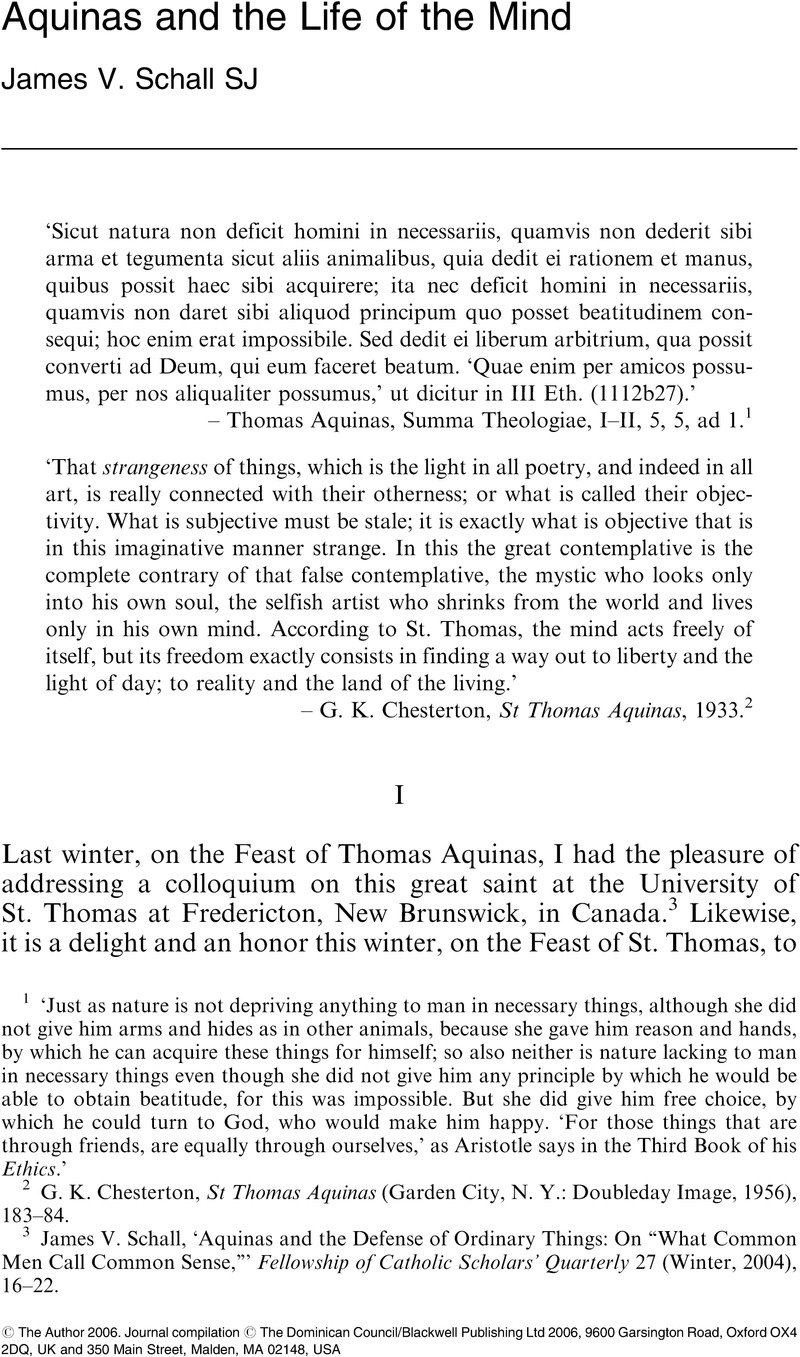No CrossRef data available.
Article contents
Aquinas and the Life of the Mind
Published online by Cambridge University Press: 01 January 2024
Abstract

- Type
- Original Articles
- Information
- Copyright
- © The Author 2006. Journal compilation © The Dominican Council/Blackwell Publishing Ltd 2006, 9600 Garsington Road, Oxford OX4 2DQ, UK and 350 Main Street, Malden, MA 02148, USA
References
1 ‘Just as nature is not depriving anything to man in necessary things, although she did not give him arms and hides as in other animals, because she gave him reason and hands, by which he can acquire these things for himself; so also neither is nature lacking to man in necessary things even though she did not give him any principle by which he would be able to obtain beatitude, for this was impossible. But she did give him free choice, by which he could turn to God, who would make him happy. ‘For those things that are through friends, are equally through ourselves,’ as Aristotle says in the Third Book of his Ethics.’
2 Chesterton, G. K., St Thomas Aquinas(Garden City, N. Y.: Doubleday Image, 1956), 183–84Google Scholar.
3 Schall, James V., ‘Aquinas and the Defense of Ordinary Things: On “What Common Men Call Common Sense,”’Fellowship of Catholic Scholars’ Quarterly 27 (Winter, 2004), 16–22Google Scholar.


